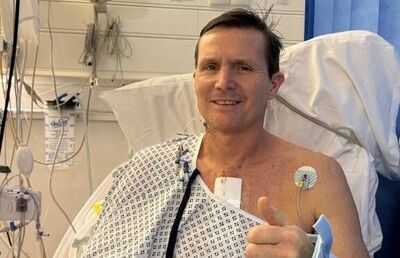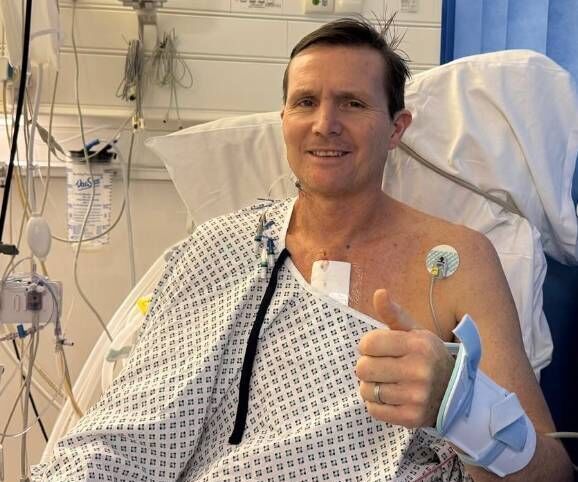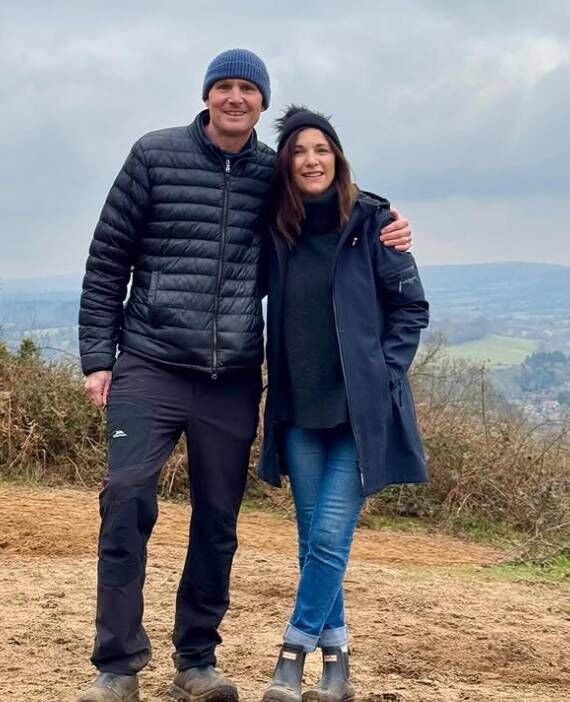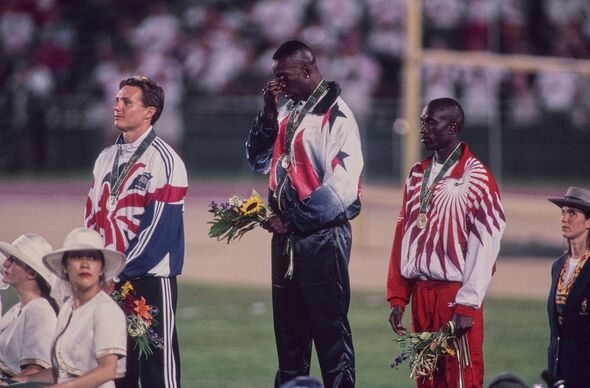

Olympic medallist Roger Black has undergone open heart surgery to address a problem that was identified when he was just 11 years old.
The 1996 Atlanta 400m runner-up, now 58, had attributed his tendency to fall asleep in front of the TV and need for frequent coffee stops on long drives to 'becoming an old git'.
However, following an annual echocardiogram last August, it was revealed that he required major surgery.
Despite having a faulty heart valve - first detected nearly 50 years ago by a school nurse - the Gosport-born sprinter achieved significant success, including relay gold medals at World Championships in Tokyo and Athens, as well as Olympic silver medals.
But last year, despite maintaining daily 30-minute jogs, he was diagnosed with severe heart-valve disease and damage to the main blood vessel carrying blood from the heart.
"The doctors said I could be out on a jog one day and my aorta could burst and I would die - they didn't quite put it like that, but that's what they were saying," he shared with the .
"The thing is, I had felt fine - I didn't have any symptoms apart from the tiredness," he added. While the surgery was necessary to prevent a far grimmer outcome, Black confessed that the prospect filled him with fear.
"My consultant called me and said: 'The time has come'. But it didn't really sink in until I got the hospital letter. I knew this needed to happen, but was I scared? Absolutely.
"I felt very vulnerable. The chance of me not waking up afterwards was less than two per cent - but that's the bit I was scared of."
Black survived the surgery and is currently on the path to recovery, albeit incrementally. Initially, a mere 20-metre walk left him completely drained, and he now relies on paracetamol to lessen the pain originating from the significant incision across his chest, alongside a variety of other medications.
A familiar face in athletics, Black consumes aspirin to prevent blood clotting, takes statins to manage increased cholesterol levels, and uses medication to stabilise a temporary heart rhythm disturbance, which commonly follows open-heart procedures.
Nonetheless, he celebrated reaching a key rehabilitation landmark recently by making it to the summit of St Martha's Hill near Guildford.

Nowadays, Black champions Heart Valve Voice's initiative aimed at elevating the awareness around heart valve disease symptoms, including breathlessness and dizziness post-exertion.
While he was diligent about getting yearly examinations for his condition, not everyone is as vigilant.
In the UK, approximately 40,000 individuals succumb to heart valve disease annually. A large number are oblivious to their affliction, often attributing telltale symptoms to natural aging processes, much like Black once rationalised his own signs.
Dincer Aktuerk, a consultant cardiothoracic surgeon at St Bartholomew's Hospital NHS Trust in London, explained to Mail Online the severity of stenosis. "A typical valve is 2.5cm wide, but in those with severe stenosis the blood may be pushing through an opening of 1cm or less," he said.
"That means your coronary arteries and heart don't receive enough blood and you develop heart pain and breathlessness and other symptoms.
"But if you are breathless and get tired with minimal exertion - such as going up the stairs - or have unexplained chest pain, then you need to ask whether it could be heart-valve disease."

Earlier this month, Black shared his personal experience with the condition on social media. "Three weeks ago I had open heart surgery to replace my aortic valve and repair my aortic root," he revealed.
"My 'incompetent' bicuspid aortic valve was discovered when I was 11 years old and for the last 47 years I have been looked after by the cardiac team at Southampton General Hospital.
"At my annual check up last Summer it was clear that things had deteriorated despite me having no obvious symptoms - It was a shock but deep down I knew this day would come even though I never allowed my heart disease to define me and prevent me from pursuing my athletic career.
"Thank you to Mr Tsang and all the medical team in Southampton who cared for me during what was a tough time in hospital -I am forever grateful.
"Most of all thank you to my wife Jules who was there when I woke up in Intensive care 11 hours after surgery and has cared for me every day in recovery. Each day has been about small steps - yesterday was a big milestone as we walked to the top of St Martha's Hill..our special place."
This article originally appeared on the